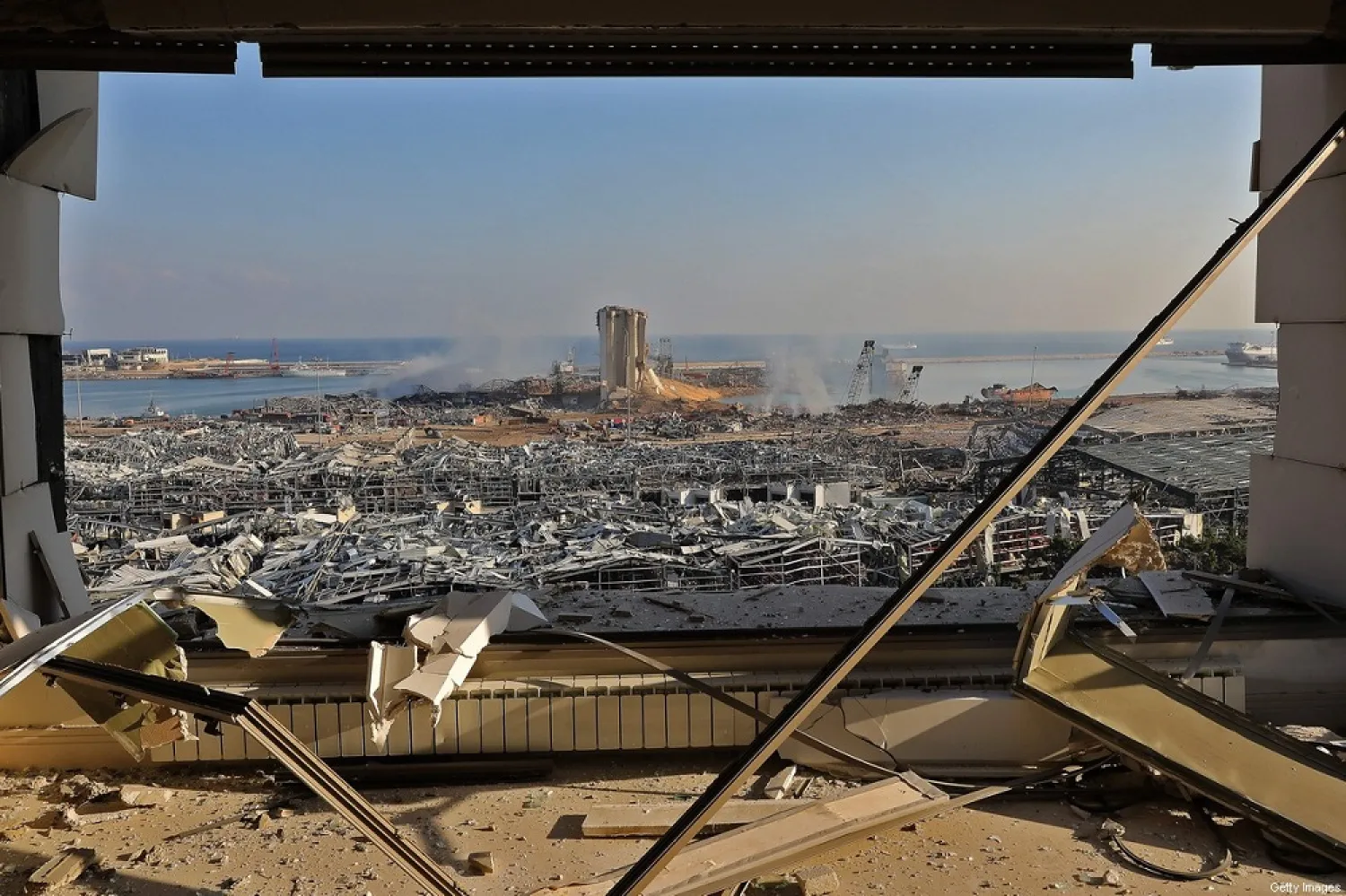Lebanon's ambassador to Germany Mustapha Adib was designated prime minister on Monday ahead of a visit to Beirut by the French president who will press for long-delayed reforms to steer the Middle East nation out of its deep crisis.
Emmanuel Macron, who arrives late on Monday for his second visit in less than a month, has spearheaded international efforts to get Lebanon's fractious leaders to tackle the root causes of a financial meltdown that devastated the economy even before the Aug. 4 port blast killed 190 people.
With the economy on its knees, a swathe of Beirut in tatters and sectarian tensions rising, the former French protectorate is facing the biggest threat to its stability since a 1975-90 civil war.
Soon after securing the vote of enough parliamentary blocs following consultations with President Michel Aoun, Adib called for the formation of a new government in record time and the immediate implementation of reforms as an entry point for an agreement with the International Monetary Fund.
"The opportunity for our country is small," Adib said after he was formally designated by Aoun.
He said he was seeking the formation of a cabinet of experts with the aim to carry out essential reforms.
“There is no time for talking and promises. Now is the time for work with everyone’s cooperation,” he added.
Soon after his nomination, he headed to the Beirut neighborhoods of Gemmayze and Mar Mikhael that sustained the heaviest damage from the cataclysmic port blast.
Senior Lebanese officials said Macron's mediation was essential in securing agreement on a candidate in the 48 hours before consensus emerged on Adib. Last week, they were in complete deadlock who would be the next premier.
Adib's name surfaced on Sunday when he was nominated by former prime ministers, including Saad Hariri.
Adib has been envoy to Berlin since 2013 and was adviser to former Prime Minister Najib Mikati.
Hariri's Future Movement, Hezbollah and the Progressive Socialist Party led by Druze politician Walid Jumblatt were among the first groups to nominate Adib in the formal consultations. Aoun’s Free Patriotic Movement also nominated Adib.
The Lebanese Forces was the only major party not to support him. It backed another ambassador, Nawaf Salam, a choice strongly opposed by Hezbollah. Other parliamentary blocs chose to nominate Salam or abstained from choosing a candidate.
The abstainers explained that they refused to adopt the same political mentality and process as others and that has led Lebanon to the abyss, criticizing other blocs for their unwillingness to adopt a new approach amid the severe crises plaguing the country.
Keeping up the pressure
Macron, who meets Lebanese politicians in Beirut on Tuesday, made a series of phone calls to Lebanese leaders at the weekend that were vital to securing the consensus on Adib.
"It was the pressure of his calls to everyone, the pressure of his coming to Lebanon, the pressure of everyone not wanting to upset him," a senior Lebanese politician said, adding that "no one can afford a long process" to agree a new government.
In the past, forming a new government has taken months of political horse trading.
A French presidency source told Reuters Macron's demands "are clear: a government of mission, clean, efficient, able to implement the necessary reforms in Lebanon and therefore able to receive strong international support".
With the backing of Hariri and Jumblatt, both influential players, Adib will enjoy more support than Hassan Diab who quit with his government on Aug. 10 after the port blast. Diab was nominated by Hezbollah and its allies who together have a parliamentary majority.
Hariri called for the quick formation of a government of specialist ministers under Adib, who has a doctorate in law and political science.
Donor states want to see Lebanon address state corruption and waste, the root causes of the financial crisis.
Lebanon won pledges of more than $11 billion in support at a Paris conference in 2018 conditional on reforms that it failed to carry out, such as fixing an electricity sector that bleeds state funds yet still fails supply 24-hour power.
Once designated, the process of forming a new government will start. Until a new administration is agreed, the outgoing government continues in a caretaker capacity.
Lebanon's financial crisis has sunk the currency by as much as 80% since October, locked savers out of their deposits in a paralyzed banking system and fueled poverty and unemployment.









